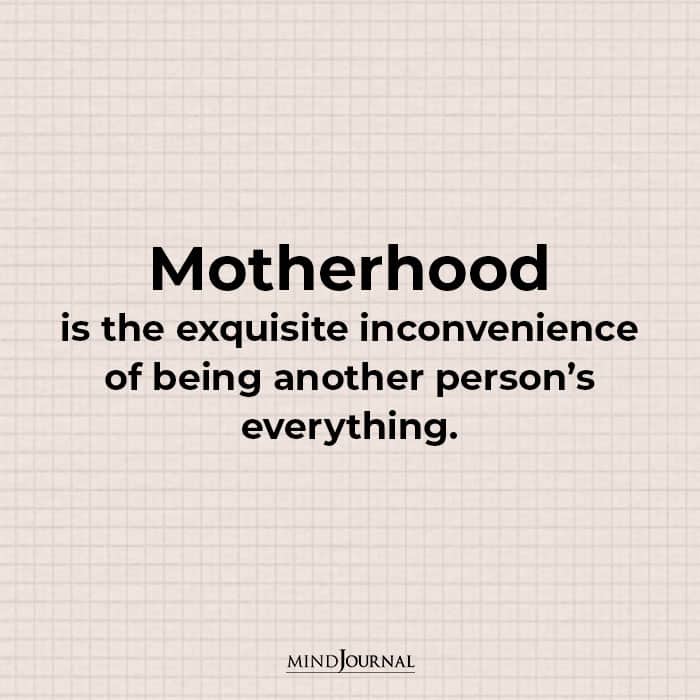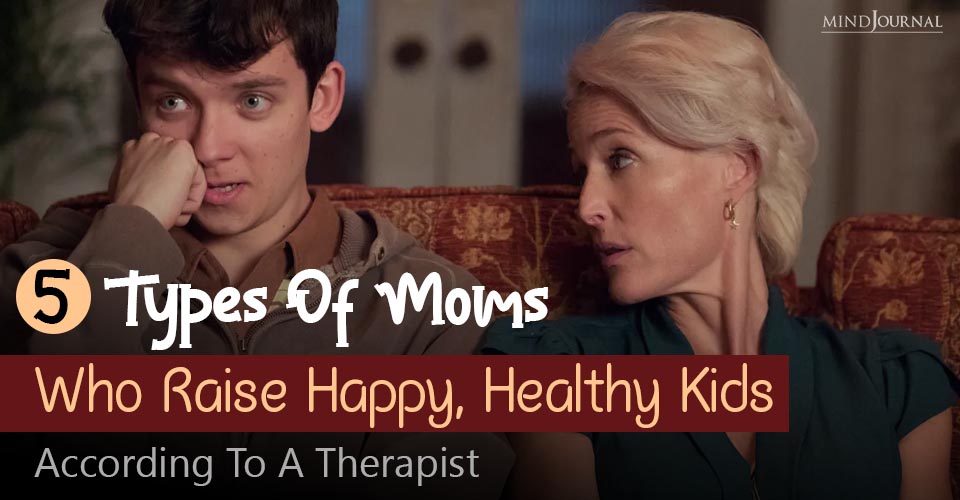Wondering what kind of mom helps raise healthy kids? A therapist shares insights on 5 different types of moms who create a nurturing environment for their children.
These women aren’t overindulgent, uninvolved, or authoritarian — but they are not perfect, either. So how do they do it?
I cringe at the word “amazing” when used to describe moms. When I hear it, I think of the women who feel intimidated and inadequate just hearing this overused term. I certainly do.
Let’s face it, motherhood is not for the weak and squeamish, and even on our best days as mothers we can fail one moment and succeed brilliantly the next.
I have known some great mothers, women who have withstood their children’s hardships, failures, and brilliance. These women aren’t overindulgent, uninvolved, or authoritarian — but they are not perfect, either. So how do they do it?

Read more here: The Kind Of Mom You Are Based On Your Love Language
Let’s explore the traits that make these women such extraordinary mothers.
5 Different Types Of Moms That Raise Healthy Kids
1. The ‘here for you’ mom
The “here for you” mom is responsive and emotionally engaged.
Great mothers respond promptly, show genuine interest in their children, and do so in relevant ways. This kind of response promotes engagement, and growth of vocabulary and encourages conversation.
The crucial reason to give your child a quick and relevant response is it communicates that you are listening and that what they are saying is valuable. The engaged “here for you” Moms make their children feel heard and understood and send a message the world is safe, they are valuable enough and will succeed at what they do.
As a working mother of three with busy schedules, making time for each child was a stretch and I often felt inadequate. This is why I applaud the families who sacrifice earning potential to have a stay-at-home parent.
If you are one of those who help with homework, listen to your child’s worries, or celebrate their success, know you are an exemplary mother. However, if you were more like me, simply trying hard to be a consistent reliable presence, know that “good enough” is also OK.
2. The ‘follow-through’ mom
The follow-through mom sets and reinforces boundaries & consequences.
Effective mothers understand that natural consequences are key to their child’s learning and get out of the way when these occur.
The best part is that when the consequence of their actions occurs, this Mom releases judgment, scolding, and criticism and continues to be flexible and understanding while guiding her children through the learning process. This helps children understand the impact of their actions without feeling they have lost a parent’s love.
I consider Emily an amazing mother. Although she grew up in a household where punishment was harsh and relentless, she promotes an attitude of accountability and responsibility by allowing her teenage children to manage their own time.
When they fail to complete homework, are late for the bus, or neglect chores, she doesn’t scold, roll her eyes, or overreact but discusses what they can do differently next time. This approach helps them learn responsibility and time management without feeling resentful.
Read more here: 10 Fun Activities To Spark Creativity In Kids
3. The proactive mom
The proactive mom uses communication to prepare her kids and reinforce values.
Good communication is the difference between average and good parenting. That’s why you will see amazing mothers listen more than they “preach,” discuss rather than tell, and demonstrate respect for their children’s values, thoughts, feelings, and opinions.
Proactive engagement in discussions teaches values and reasoning, builds character, and encourages personal growth to foster an environment of mutual respect and understanding.
Jessica, a mother of two is time-crunched with a busy career and a side hustle, so she uses weekly family meetings as a way to stay in touch and reinforce values and good judgment.
This is when she shares her insights and discusses right and wrong and the need for gratitude. On these Friday evenings, her schedule is clear and there is time for everyone to speak up. This open dialogue helps her children develop strong communication skills and emotional intelligence.
4. The ‘shoulder to cry on’ mom
The “shoulder to cry on” mom is nurturing and supportive, a soft place for kids to land.
So significant is nurture and support in the formation of a young person that it is critical both parents pull their weight and the role is not fulfilled only by a mother. However, mothers are often recognized as the primary source of support and encouragement, helping their children build self-esteem and resilience.
They serve as the cheerleaders when things go well and the shoulder to cry on when life is tough. Since both scenarios are inevitable, children naturally turn to the parent who is consistently there for them.
For example, Maria, whose daughter struggles with anxiety, offers constant reassurance and support. She attends therapy sessions with her daughter, learns about anxiety management techniques, and practices them at home. Maria’s nurturing approach creates a comforting and secure environment for her daughter to flourish.
5. The ‘healthy stress’ mom
The “healthy stress” mom models emotional intelligence.
Great mothers who manage their emotions effectively, have good boundaries and respectful relationships, demonstrate healthy ways to cope with stress and frustration, and navigate the world. This modeling provides their children with the necessary skills to navigate the world and their future.
Consider Anna, who was faced with a stressful situation, took a deep breath and calmly addressed the issue. Ana speaks up, and stands up for herself and her children observe and learn from her example, understanding that it’s OK to feel stressed but important to handle it healthily, and good boundaries support wellbeing.
The goal? To balance a little of all five different types of moms
Being a mother who makes the world a better place isn’t about perfection; it’s about being present, understanding, communicating, supporting, and emotionally intelligent, traits that create a nurturing environment where children feel valued and respected, and grow into secure, successful, and emotionally intelligent individuals.
While it’s easy to feel like we fall short, remember the journey of motherhood is ongoing, and every effort we make contributes to the well-being of our children.
Besides modeling a loving spousal relationship (when possible), these moms don’t ignore the basics. They say “I am sorry”, “thank you”, and “I am so proud of you” every day, so their kids learn to do the same.
Want more relationship tips and life lessons? Join my newsletter Reclaim Your Day With Reta.
Read more here: 10 Reasons Why Being A Stay At Home Mom Is The Hardest Job
So these were the 5 different types of moms that raise happy kids. Which type of mom are you? Share your thoughts about this in the comments below!
Written by: Reta Faye Walker
Originally appeared on: Your Tango










Leave a Reply